This collection was published in its American edition approximately (11) years after Hemingway’s death. These stories were compiled from Hemingway’s literary legacy, as well as from stories that Hemingway himself had collected in his three short story collections: “In Our Time,” “Men Without Women,” and “The Short Happy Life of Francis Macomber.” These were published by the famous American publishing house Charles Scribbins & Sons in 1972.
The author of the introduction to this collection indicated that all of these stories, which are united by a main character: Nick Adams, are published under the title “The Nick Adams Stories.” Although some of these stories had been previously published in collections, as noted here, the publishers of Hemingway’s unpublished works decided to publish them together (whether published before his death or not) in chronological order. This arrangement gives the collection an organic unity that sheds light on Hemingway’s earlier and later writings and clarifies much of what has been obscure about Hemingway’s personality and the broader scope of his life and works.
Convinced by the argument of the author of the introduction and by those who cooperated in publishing the collection, we publish it here in its entirety, as it appeared in the 1972 New York edition, with the new stories printed in boldface Arabic instead of the italics in the American edition.
Nick Adams Stories
د.ا7.00
This is a collection of short stories that presents a vivid portrait of the life of the boy Nick Adams, exploring the development of his personality and experiences from various stages of his life, with a focus on the feelings and challenges he faced as a young man.
Available on backorder
| Categories: | Literature, stories, History of literature, World literature |
|---|---|
| Tags: | literature, stories, thought, World Literature |
| Author | |
|---|---|
| Year |
You may also like…
-
Things Fall Apart
د.ا10.00The novel sheds light on the impact of Western colonialism on African societies, through the story of the collapse of traditions and values in Nigerian society due to cultural and social changes.
-
Men Without Women
د.ا5.00This collection tells the stories of men facing emotional and physical challenges, reflecting the inner struggle and loneliness of a world filled with pressure.
-
The Short Happy Life of Francis Macomber and Other Stories
د.ا5.00This is a collection of short stories by Ernest Hemingway that addresses themes such as courage and inner conflict through characters dealing with difficult situations. Life and death are crucial.
-
In Our Time: The Snows of Kilimanjaro and Other Stories
د.ا5.00It is a collection of short stories by Ernest Hemingway, dealing with themes such as death, loss, and personal conflict, in his distinctive style that blends simplicity with depth.
Related products
-
The Forty Rules of Love
د.ا10.65is a novel written by the Turkish author Elif Shafak,[1][2][3] Her interest in writing this book was influenced by the degree she received in Gender and Women’s Studies.[4] The book was published in March 2009.[5] It is about the Persian mystic poet Maulana Jalal-Ud-Din, known as Rumi and his companion Shams Tabrizi.[6][7] This book explains how Shams transformed a scholar into a Sufi (mystic) through love.[8] More than 750,000 copies of this book were sold in Turkey and France
د.ا12.78 -
Revolution of 36-39 in Palestine
د.ا2.13Until his early death, Ghassan Kanafani published eighteen books, and wrote hundreds of articles and studies on culture, politics, and the struggle of the Palestinian people. Following his assassination, all of his books were republished in Arabic, in several editions
د.ا3.55 -
Prisoner of Heaven
د.ا7.10After the shadow of the wind and the angel game, I ended my strange meeting with Carlos Zafon in the third part of the Tomb of Forgotten Books series in this piece that I read while trying to understand what was going on in his head, which wanted the prisoner of heaven to tell us the dark nights of Barcelona from the window of its prisons, that prison that embraced Martin for a long time and through which he excelled in writing The Game of the Angel, which was the hero of that novel David Martin and Isabella, and we got to know their end, which was not confirmed by the lines. The writer also explains that what we can consider a coincidence with us may be wisely studied and what we interact with with all honesty may be fake and obsolete as the first boot, the past is just images stuck in our heads and just a glance of it returns to expose itself, and opens new cracks in our hearts, pushing you to search and explore what the truth is and to what extent it can comfort you or in any proportion that may make you a wreckage between the legs, yet the search for it is The way of salvation,
د.ا8.52 -
Lover
د.ا2.13Ghassan Kanafani is a Palestinian novelist, storyteller, and journalist, and is considered one of the most famous Arab writers and journalists in the twentieth century. His literary works, including novels and short stories, were deeply rooted in Arab and Palestinian culture
د.ا3.55 -
The hat and the prophet
د.ا2.13Ghassan Kanafani is a Palestinian novelist, storyteller, and journalist, and is considered one of the most famous Arab writers and journalists in the twentieth century. His literary works, including novels and short stories, were deeply rooted in Arab and Palestinian culture
د.ا3.55 -
The other thing
د.ا2.13Ghassan Kanafani is a Palestinian novelist, storyteller, and journalist, and is considered one of the most famous Arab writers and journalists in the twentieth century. His literary works, including novels and short stories, were deeply rooted in Arab and Palestinian culture
د.ا3.55 -
One Hundred Years of Solitude
د.ا12.07One Hundred Years of Solitude is a 1967 novel by Colombian author Gabriel García Márquez that tells the multi-generational story of the Buendía family, whose patriarch, José Arcadio Buendía, founded the fictitious town of Macondo. The novel is often cited as one of the supreme achievements in world literature.
د.ا17.75 -
For Bread Alone
د.ا4.97For Bread Alone , al-Khubz al-Hafi) is a controversial autobiographical work by Mohammed Choukri. It was written in Arabic in 1972 and translated into English by Paul Bowles in 1973.[1] In 1980, it was published in French as Le Pain Nu in a translation by Tahar Ben Jelloun. The novel has been translated into 39 foreign languages[2] and adapted into a French graphic novel by Abdelaziz Mouride [fr].[3]
د.ا7.10





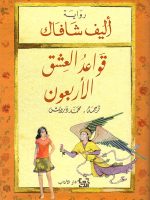
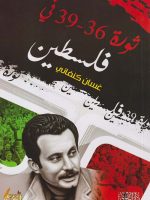
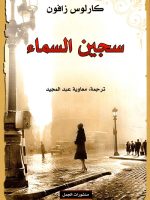
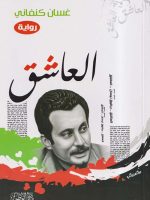
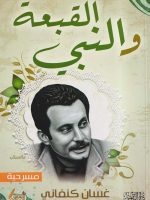
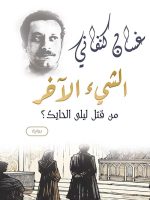
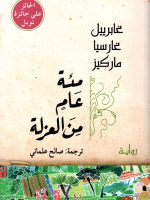
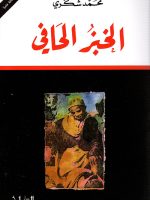
Be the first to review “Nick Adams Stories”